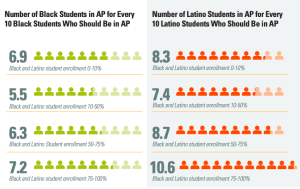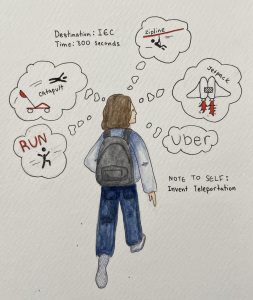MORE TIME PLEASE: The ins and outs of extra time
February 11, 2022
There has been an explosion in the number of teens requesting extra time for testing in schools. According to the College Board (2019), requests for accommodations were noted to have increased 200% between 2010 to 2018. Simultaneously, the number of test-takers increased only by 25%. While the stigma around extra time on tests has decreased in recent years, leading many students to speak up about their struggles and get the help they need for their learning differences with educational accommodations, an increasing percentage of students seek testing accommodations in order to improve their chances on standardized tests – and it’s only getting worse.
The process to be approved for extra time is not fast or cheap. In order to receive extra time on test accommodations at Masters, all requests must go through the LEAD department. (Learning Enhancement And Development). Julia Jones, the director of the LEAD department described the process of receiving such accommodations.
“Certain documentation that outlines a diagnosis has to be submitted in order to make the determination if the extended time accommodation would be put in place. Additionally, there’s a team process around the documentation to review it and then determine the accommodations. If it’s determined that a student is eligible for extended time, then within the LEAD office, we write an accommodation plan that teachers have access to.”
Not only is this process potentially challenging and expensive for families, but there is an entirely separate process if a student wants extra time on standardized tests such as the SAT and ACT.
In a recent survey of The Masters Upper School, out of the 105 students that answered the questionnaire(sent to the entire Upper School student body of approx. 504 students) 50% of the students indicated that they receive extra time. There were a lot of reasons as to why each student has their accommodation. Out of the people that receive extra time, 19% declared that they never use it, even after all the hours of getting tested.
Junior Lauren Marlowe spoke about her experiences with the extra time accommodation. Before Masters, she attended Windward School, which focused on supporting her education in light of her learning differences.
Marlowe said, “Extra time helps me relax. It puts me on the same playing field as kids who don’t need extra time. It allows me to write out what I’m trying to think and say.”
Marlowe noted that she uses her extra time on everything. No matter the complexity of an assignment, she said she always needs her extra time.
On the other hand, a high school student [at Masters] who decided to stay anonymous stated they use their accommodations differently.
The student explained they don’t always need extra time for every subject. They said, “Like, for example, for math tests, I usually have enough time. And within class essays, I might use it a little more, but not all the time. Whereas with the tests like the ACT or any other standardized test, I tend to utilize all the time because I tend to not finish within the standard time window.”
Out of the students that answered the survey, 30% of those students noted they only use their extra time on standardized tests.
The question, then, is how much a test score really matter in one’s college application. One of the college counselors at Masters, Karin Tucker explained the importance of standardized tests.
Tucker said, “Sometimes, test scores can only add to your application, sometimes they can hurt your application. Certain schools believe that a test score is not completely representative of a student’s ability to succeed in college.”
In a Tower interview with Ron Lieber, author of the “Your Money” column in
The New York Times, he pondered whether extra time and slightly better test scores really do help a student.
Lieber said, “Without the test, your acceptance rate goes down seven percent. But are those seven percentage points really worth it? Is it really worth it to pay some psychologist $10,000 to write you a note to get the extra time when your school is already a known quantity? I don’t know. I am deeply skeptical.”


















